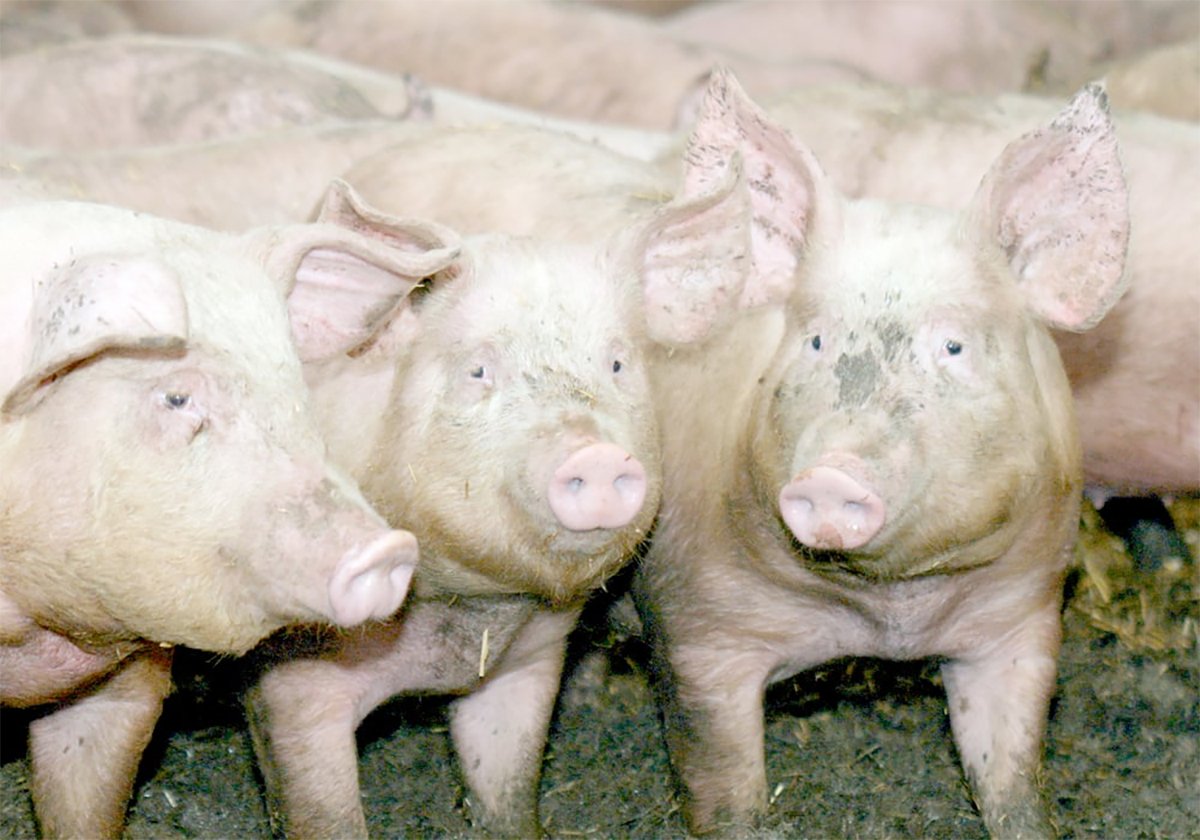DIDSBURY, Alta. — When it comes to getting some straight answers about foot-and-mouth disease, rancher Linda Eide says she only feels confusion.
“We’re getting a lot of ‘shouldn’ts’ and ‘reduced risk,’ but I’m not sure if that is good enough at this point.”
Eide spoke up at a public meeting in Didsbury, where more than 300 people came to learn about the disease that has ravaged the British countryside for nearly two months.
Eide works at Wirsig Farm and Ranch Vacations near Carstairs, Alta., where eight to 10 guests a day start arriving in April to work with cattle, ride horseback and fish. The ranch runs 4,000 head of cattle and last month the owners decided to turn away European visitors for the time being.
Read Also

The Western Producer Livestock Report – October 2, 2025
Western Producer Livestock Report for October 2, 2025. See U.S. & Canadian hog prices, Canadian bison & lamb market data and sale insight.
The decision was guided by uncertainty over a disease that is costing the United Kingdom an estimated $20 million (Cdn) per day.
“It’s frustrating. We feel like everyone is sitting on the fence and not giving us answers,” she said.
People do not necessarily have to cancel European guests or school trips, but some guidelines need to be followed, said Larry Delver from the Canadian Food Inspection Agency’s import-export division.
The disease in Europe has probably plateaued, but precautions remain to control this particularly infectious and unpredictable strain of the virus.
Farms who have European guests have been given this advice:
- Guests should be encouraged to buy clothes in Canada.
- Make sure any clothes guests bring are clean and encourage them to answer all customs questions honestly.
- Guests should stay away from cattle.
- Don’t let guests bring gifts of food like cheese or prepared meats. The virus can survive up to a year in preserved meats like sausage.
- Guests shouldn’t go to the farm immediately. They should stay away for 36 hours and disinfect all shoes in a mixture of 50:50 water and vinegar.
“One virus is not going to cause the disease,” Delver said.
“If you dilute the virus by normal laundering of clothes, you’ll be OK.”
While the government has been accused of dragging its feet to prevent foot-and-mouth from entering North America, Delver said part of the problem is a staff shortage.
“We don’t have enough people to deal with an outbreak. Neither do the Brits.”
Nor can the government control people movement, he added.
Commodities are a greater problem than people who walk through disinfected mats upon arrival at airports and other ports of entry.
“We have 300,000 passengers arriving in Canada a day. Any one of them can be bringing something that has foot-and-mouth virus in it.”
Delver said the most likely host of infection is dirty outdoor shoes or food carried in visitors’ luggage.
The CFIA worries about traffic at ports like Vancouver, where 1.3 million containers arrive each year.
In the last several months, six containers arrived at Vancouver containing poultry and pork from Asia, but the manifest said they were carrying frozen fish. Inspectors are also monitoring food stores, where they are finding considerable amounts of contraband meat.
“Pork from China has a good chance of carrying several diseases we don’t have,” Delver said.
There are several areas for farmers to watch.
“If you’ve got your farm up for sale, make sure you know who that realtor has got with him. Your land isn’t going to be worth very much if they bring foot-and-mouth with them.”
The British military is not likely a danger because no one who has worked with animal disposal may leave the country, he added.
Delver said petting zoos are another area of concern. Thousands of people come into close contact there with animals that they feed and pet.
Most officials are not highly concerned about school tours to Europe because the students are not allowed anywhere near infected areas. Most stay in cities and when they return the scrutiny will be greater than the average anonymous tourist.
Overall, the chances of foot-and-mouth coming to Canada are remote, Delver said.
People crisscross the globe daily and have not brought a livestock disease here since 1952.
Chuck Groeneveld, a rancher and a volunteer with the Calgary Stampede, sees no reason to cancel major livestock shows.
“We can’t run and hide.”
He is less concerned about international guests walking through the Stampede barns than he is having tourists fishing from the Highwood River near his ranch. He can’t control recreationists who are near his cattle.

















